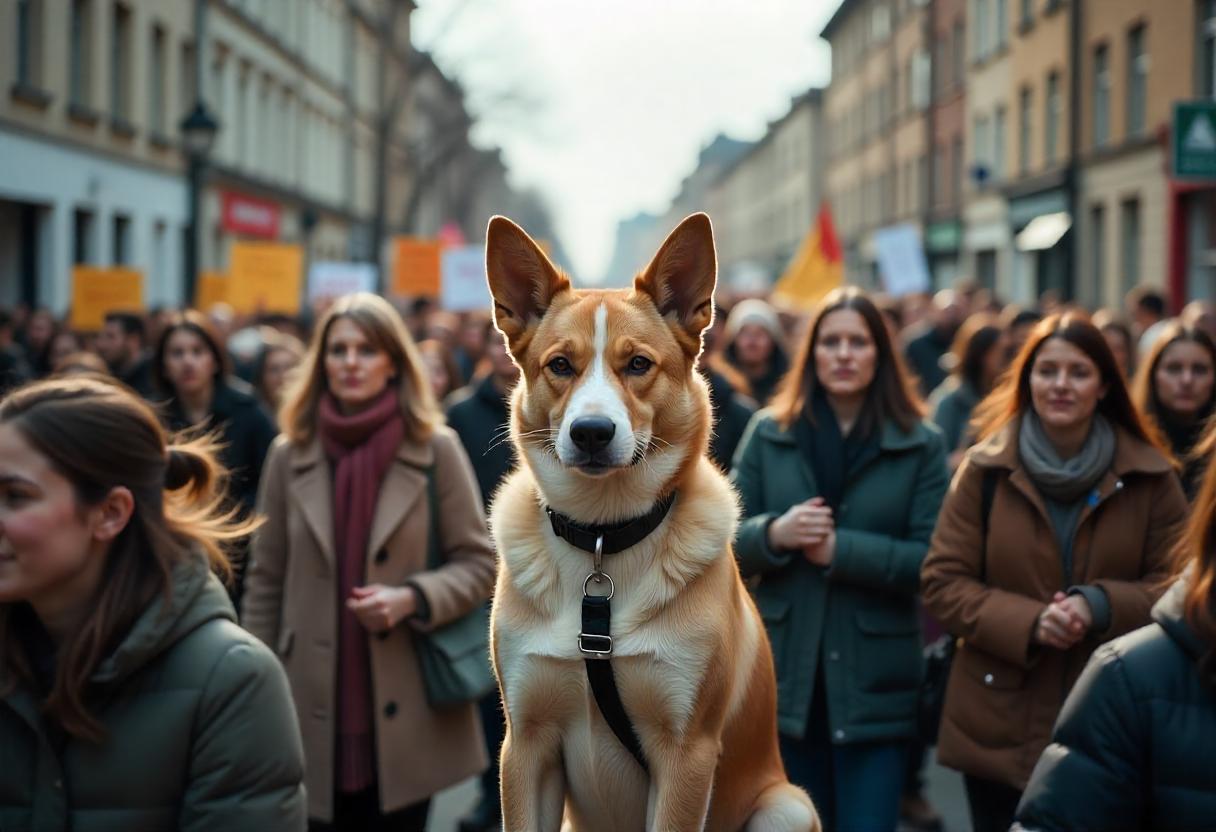NEWS
Defenders of Animal Rights: Champions of Compassion

The plight of animals worldwide has gained significant attention, thanks to the relentless efforts of defenders of animal rights. These passionate individuals and organizations work tirelessly to protect animals from cruelty, neglect, and exploitation. Whether advocating for wildlife conservation, ethical treatment of farm animals, or the abolition of animal testing, these defenders play a crucial role in shaping policies and raising awareness.
The fight for animal rights is not merely about compassion; it is a moral obligation to ensure that sentient beings are not subjected to suffering. This article explores the history, key players, challenges, and future prospects of the defenders of animal rights, shedding light on the incredible work they do.
The Rise of Animal Rights Activism
Animal rights activism has evolved from a niche movement into a global force. Over the years, increasing awareness about animal cruelty has led to stronger legislation, policy changes, and a more compassionate society.
Historical Overview of Animal Rights Advocacy
The animal rights movement can be traced back to the early 19th century, when the first laws against animal cruelty were introduced. The establishment of the Society for the Prevention of Cruelty to Animals (SPCA) in 1824 marked a pivotal moment. Over the decades, advocacy has evolved, tackling issues such as factory farming, animal testing, and the fur industry.
Pioneers in the Fight for Animal Welfare
Several individuals have played a significant role in shaping the animal rights movement. Henry Bergh, founder of the American Society for the Prevention of Cruelty to Animals (ASPCA), and Peter Singer, a philosopher known for his book Animal Liberation, have been instrumental in changing perspectives on animal welfare.
The Role of Defenders of Animal Rights
Defenders of animal rights encompass a wide range of activists, organizations, and legal entities. Their work includes rescue operations, lobbying for stronger laws, and educating the public on ethical treatment of animals.
Animal Rights Organizations Making a Difference
Several organizations have been at the forefront of animal rights advocacy. These include:
- PETA (People for the Ethical Treatment of Animals): Known for its bold campaigns against animal cruelty.
- The Humane Society of the United States (HSUS): Works to end puppy mills, factory farming, and wildlife trade.
- World Wildlife Fund (WWF): Focuses on conservation efforts for endangered species.
- Farm Sanctuary: advocates for better treatment of farm animals and promotes plant-based diets.
Legislative Efforts and Legal Battles
The legal aspect of animal rights advocacy has been instrumental in bringing about change. The Animal Welfare Act, the Endangered Species Act, and anti-cruelty laws have provided a legal framework for protecting animals. Organizations like the Animal Legal Defense Fund (ALDF) work to ensure these laws are enforced.
Challenges Faced by Animal Rights Defenders
Despite significant progress, defenders of animal rights face numerous obstacles.
Opposition from Industries
Industries that rely on animal exploitation, such as factory farming, pharmaceuticals, and fashion, often resist change. Lobbying and misinformation campaigns aim to discredit animal rights activists.
Public Apathy and Cultural Barriers
Many societies have deep-rooted traditions involving animals, making change difficult. Activists often face resistance when challenging cultural practices such as bullfighting, dog meat trade, or animal sacrifice rituals.
Threats and Harassment
Animal rights defenders frequently receive threats from individuals or organizations that benefit from animal exploitation. Some activists have even been arrested for exposing animal cruelty.
Success Stories in Animal Rights Advocacy
Despite the challenges, numerous victories have been achieved in the fight for animal rights.
Banning Animal Testing for Cosmetics
Several countries, including the European Union, India, and Canada, have banned cosmetic testing on animals, thanks to persistent advocacy efforts.
Ending the Fur Industry
Luxury brands like Gucci, Prada, and Chanel have stopped using real fur in their collections, signaling a shift toward cruelty-free fashion.
Stronger Laws Against Animal Cruelty
Many nations have introduced stricter animal welfare laws, such as increased penalties for animal abuse and banning wild animals in circuses.
How You Can Support Defenders of Animal Rights
You don’t have to be a full-time activist to contribute to the cause. Small changes in daily life can make a big difference.
Adopt, Don’t Shop
Instead of buying pets from breeders, consider adopting from shelters to give abandoned animals a second chance.
Choose Cruelty-Free Products
Support brands that do not test on animals and opt for cruelty-free cosmetics, household products, and fashion.
Follow a Plant-Based Diet
Reducing or eliminating animal products from your diet significantly impacts animal welfare and the environment.
Raise Awareness and Advocate for Change
Educate others about animal rights issues, participate in protests, sign petitions, and support laws that protect animals.
Also read: Is ActBlue Legit: Unveiling the Truth About This Political Platform
Future of Animal Rights Advocacy
The future looks promising for the animal rights movement. With advancements in technology, greater public awareness, and stronger legal frameworks, animal welfare continues to improve.
Technology and Animal Welfare
Innovations such as lab-grown meat, AI-powered wildlife monitoring, and cruelty-free testing alternatives are revolutionizing the industry.
Increased Public Support
Social media and global movements have amplified awareness, making it easier for people to engage in advocacy efforts.
Stronger Global Policies
International cooperation is crucial for tackling issues like wildlife trafficking, illegal poaching, and animal cruelty in supply chains.
Conclusion
Defenders of animal rights are crucial in creating a world where animals are treated with respect and compassion. Whether through legislation, activism, or public awareness, their efforts have led to significant advancements. However, the fight is far from over, and collective action is needed to ensure a better future for all living beings. By supporting these efforts, individuals can make a meaningful impact and contribute to a more humane world.
FAQs
Why is defending animal rights important?
Animals are sentient beings that feel pain, fear, and joy. Protecting them from cruelty and exploitation is a moral duty.
What are some of the biggest threats to animal welfare?
Factory farming, animal testing, illegal wildlife trade, and habitat destruction are among the biggest threats.
How can I get involved in animal rights activism?
You can join animal rights organizations, support cruelty-free brands, adopt plant-based eating, and raise awareness in your community.
Are there any laws protecting animals?
Yes, several laws, such as the Animal Welfare Act and the Endangered Species Act, exist to protect animals, but enforcement varies by country.
What is the difference between animal welfare and animal rights?
Animal welfare focuses on improving conditions for animals, while animal rights advocate for the complete abolition of animal exploitation.
Which organizations are leading the fight for animal rights?
PETA, HSUS, WWF, and ALDF are some of the major organizations working for animal rights and welfare.
How do animal rights impact the environment?
Protecting animals helps maintain biodiversity, reduce deforestation, and combat climate change.
-

 HUMAN RIGHTS5 months ago
HUMAN RIGHTS5 months agoMercy Ships Scandal: Unraveling the Truth Behind the Allegations
-

 SOCIAL AWARENESS5 months ago
SOCIAL AWARENESS5 months agoIs Helping Hands Legit? Unveiling the Truth Behind This Organization
-

 HUMAN RIGHTS6 months ago
HUMAN RIGHTS6 months agoHuman Rights Issues: Challenges and Progress in a Globalized World
-

 SOCIAL AWARENESS5 months ago
SOCIAL AWARENESS5 months agoNational Charity League: A Legacy of Leadership and Service
